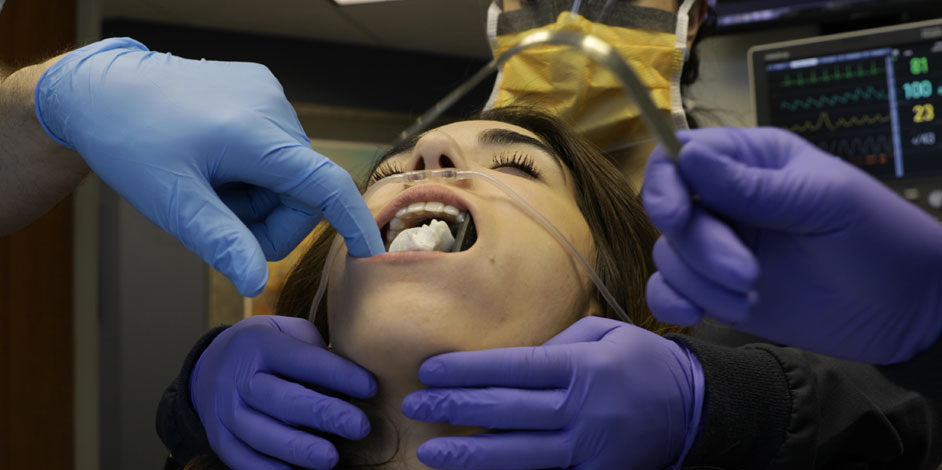
◆ Frequently Asked Questions
What are the types of sedation?
There are several forms of sedation including topical anesthetic, local anesthetic, IV sedation, and oral sedation.
Topical anesthetic:
Topical anesthetics are put on the surface of a body part to numb it. In denistry, topical anesthetics are used to numb the tissues in your mouth before administering a dental local anesthetic.
Local anesthetic:
Local Anesthic is any technique to render part of the body insensitive to pain without affecting consciousness. It allows patients to undergo surgical and dental procedures with reduced pain and distress. The anesthetic is injected.
IV sedation:
IV sedation is when a drug, usually an anti-anxiety , is administered into the blood system during dental treatment. IV sedation induces a state of deep relaxation and a feeling of not being bothered by what's going on. Secondly, the drugs used for IV sedation can produce either partial or full memory loss (amnesia) for the period of time when the drug first kicks in until it wears off. As a result, time will appear to pass very quickly and you will not recall much, or perhaps even nothing at all, of what happened.
Oral Sedation:
Oral Sedation is when an anti-anxiety pill is prescribed for relieving anxiety in the hours immediately before a dental appointment. They have a calming and relaxing effect. You will not remember much or any of your dental treatment. You may have heard of these referred to as "happy pills."
What are the benefits of sedation?
There are several benefits of sedation, three of the most common are lowered sensitivity, decreased anxiety and limited patient movement. Sedation is also beneficial for individuals who have uncontrolled movement (people with mental and or physical disabilities). It is also recommended for children who may move throughout procedure.
What are the risks of sedation?
According to the American Dental Association, sedation treatment in dentistry has a strong record of safety and minimal patient risk when performed by a skilled and well trained professional following all precautions and procedures. Sedation does have some side effects which can include headache, drowsiness, impaired judgement and performance.
Are sedatives known to interact with other prescription medications?
Certain drugs may interact poorly with sedatives and hypnotics and increases the sedative effect of these medications. In particular, patients are urged to avoid use of central nervous system (CNS) depressants such as alcohol or opioid analgesics. Antidepressants, antihistamines and some heartburn medications also interact poorly.
Is sedation required for all procedures?
No